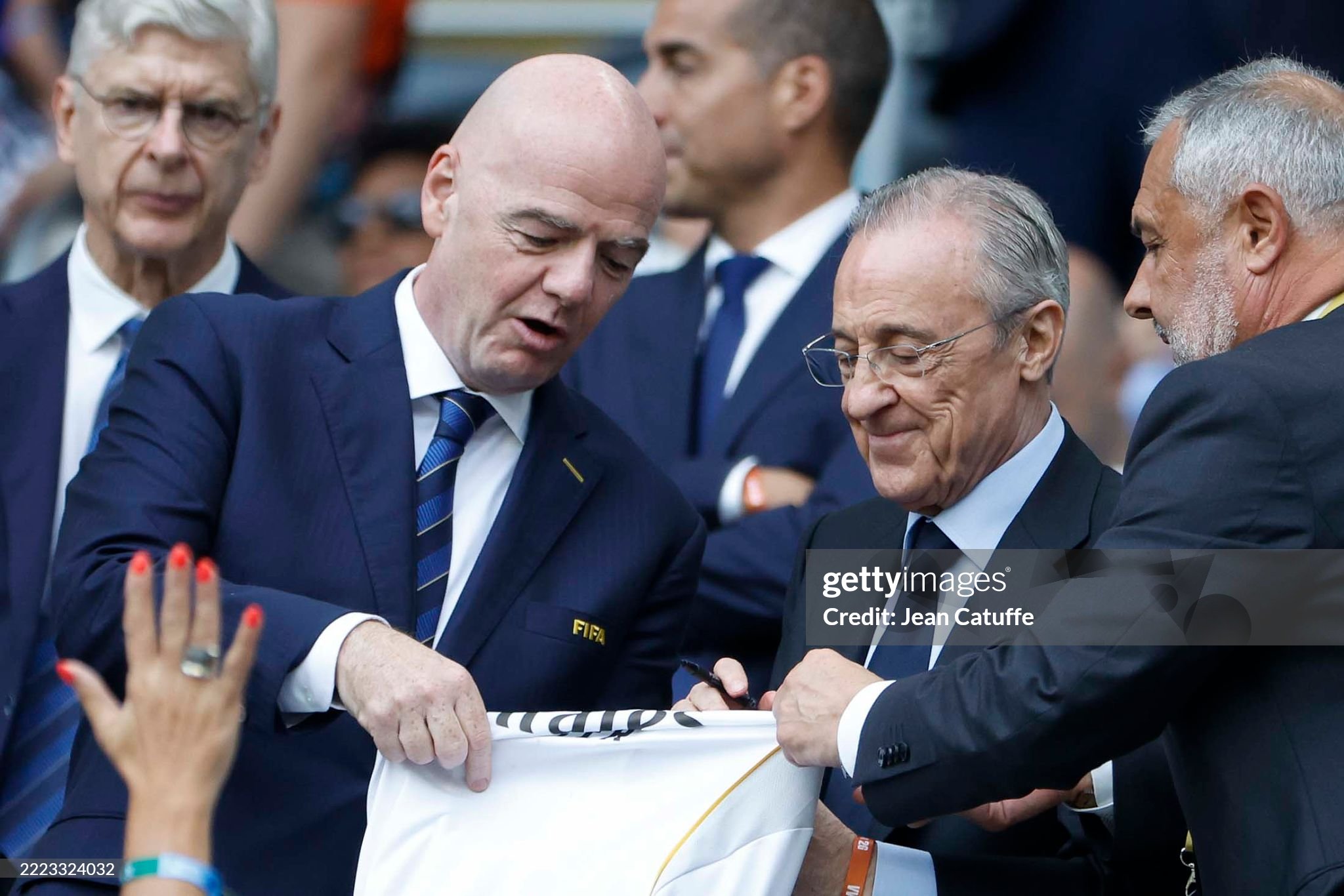Real Madrid’s approach to the newly expanded FIFA Club World Cup is anything but relaxed.
What some might still see as a glorified exhibition tournament is being treated by the Spanish giants with the same intensity and ambition as the UEFA Champions League. With massive financial rewards, global exposure, and the opportunity to be the first winner of the competition’s new format, the motivation could not be higher.
After progressing through the group stage and eliminating Juventus in a hard-fought Round of 16 clash, Real Madrid now prepares to face Borussia Dortmund in the quarter-finals, scheduled for Saturday. It’s a decisive phase of the tournament: three more victories stand between the club and a historic trophy. If they go all the way, each squad member is set to receive a one-million-euro bonus a figure that underlines the seriousness with which the club is approaching this competition.
Club president Florentino Pérez has been a central figure in shaping this attitude. According to the Spanish newspaper AS, since the moment it was confirmed that Real Madrid would take part in the Club World Cup, Pérez has been working behind the scenes to convince both the board and the squad of the tournament’s value. He reportedly emphasized that this is not a pre-season tour, not a friendly series for fitness, but a prestigious international competition worthy of the club’s full commitment something he views as comparable to the Champions League in terms of both honor and reach.
Pérez has spoken publicly about the competition’s significance, declaring: “We’ve finally achieved something we’ve been fighting for a long time. Football is the most global sport in the world. We’re grateful that technology has helped us organize this beautiful competition, and because it’s also free to watch, children all over the world can now see Real Madrid.” His words reflect more than just sporting ambition. They signal a strategic vision: this tournament is a platform to further globalize the Real Madrid brand, to deepen connections with fans around the world, and to lay the foundation for long-term influence in markets outside Europe.
Financially, the Club World Cup is proving to be hugely lucrative. Real Madrid has already secured €55 million from its participation so far. If they win the tournament, that figure will rise to €111.6 million an astonishing amount for just one month of competition. After subtracting around €2 million in travel and accommodation expenses, the club still stands to make a profit that rivals, or even exceeds, what top European sides earn from winning the Champions League. For perspective, Champions League winners typically collect around €85–100 million depending on performance and market share. The new Club World Cup is therefore not only competitive in format, but also in financial impact.
Manager Carlo Ancelotti has embraced the project without hesitation. Known for his calm demeanor and vast experience, Ancelotti has fielded strong starting lineups and rotated his squad carefully to ensure peak performance in key matches. Players like Jude Bellingham, Vinícius Jr., Rodrygo, and Federico Valverde have all taken central roles in this campaign, and their focus on the pitch has matched the club’s ambition off it. The win over Juventus sent a clear message to the rest of the contenders: Real Madrid isn’t in the United States to take part they’re there to win.
Saturday’s encounter with Borussia Dortmund brings an extra layer of intrigue, not least because Dortmund themselves are coming off a strong Champions League campaign. A victory here would bring Real Madrid one step closer to rewriting history, as they seek to be the first club to lift the trophy under the competition’s new format.
But for Real Madrid, this is about more than winning matches. It’s about legacy. It’s about being first just as they were the first club to win five consecutive European Cups, and just as they have dominated Champions League history with fourteen titles. Winning the new Club World Cup would reinforce their status not only as Europe’s most decorated side but also as pioneers of global football. In doing so, they would set the standard for future editions of the tournament and possibly reshape how clubs across Europe view FIFA’s newest project.
As the Club World Cup continues to unfold in the United States a country that is rapidly embracing football in the lead-up to the 2026 World Cup the eyes of the footballing world are fixed on Real Madrid. For Pérez, for Ancelotti, for the squad, and for millions of fans worldwide, the mission is clear: win it all, write another chapter in the club’s history, and prove once again why Real Madrid is not just a football club, but a global institution.


